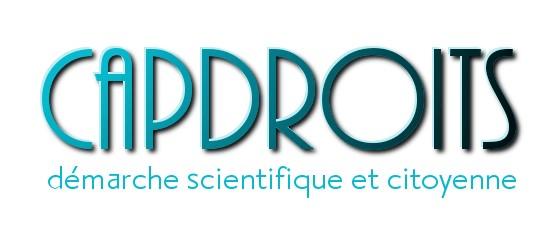Guardianships
• Capdroits

The pandemic has brought to light blind spots in democratic governance, especially in healthcare: people made vulnerable by age, illness and/or disability. It has highlighted public authorities’ protectionist reflexes in contrast to public expectations and demand in terms of protection for the most vulnerable citizens.
The project aims to :
- Assemble a mixed research community that would both inter- and transdisciplinary, to work on the issue of vulnerable people exercising their fundamental rights ;
- Combine practical and theoretical objectives, or in other words, respectively creating such a community and laying out the epistemological foundations of these innovative research practices ;
- Implement a variety of interventions: “mobilising forums”, “supporting and empowering expertise”, “developing accessible tools to produce and share knowledge”.
On Tuesday, the 29th of June 2022, the Occitan mixed research community met with the Council of Economic, Social and Environmental Affairs in Paris. During the 3rd assembly between the Senate and the Parliament, the community premiered the publication of its handbook “Autonomy of Life as a Human Right”.
Were present : Christophe JEAN, Grégory GLORIEUX, Thierry NOEL (protection measure beneficiaries), 2 professionals from Lou Camin, Stéphane MICHELIN, Roseline BARBIER, J. F HOAREAU.
• E-Youth

The ERASMUS + E-Youth Project develops an intersectoral (health, social and medico-social services, associations) and community-based intervention methodology for NEET (stands for Not in Education, Employment or Training) profiles with a disability, based on the UN Convention on the Rights of Persons with Disabilities, while trying to focus on improving the skills of young workers or young professionals in the sector.
The general objectives are to:
- promote the social inclusion of young people with disabilities with complex needs and fewer opportunities (NEET) in order to ensure the respect of their human rights;
- contribute to the construction of the identity and citizenship of these people at risk of exclusion by developing concrete actions to implement the European pillar of social rights.
The specific objectives are to:
- design and create a methodology for cross-sectoral and co-produced intervention between health, social and medico-social services and other associations to develop community-based services;
- upgrading and retraining existing professionals in the disability sector by identifying their current skills and developing evidence-based and rights-based training programmes;
- developing resources to promote the personal development, autonomy and resilience of young people with complex needs and fewer opportunities to promote pathways to inclusion.
• County Coordinator of the Territorial Plan for Mental Health
Because our services (guardianships, housings etc) and our members are important actors in the field of mental health, the Udaf 82 was selected to be coordinator of the Territorial Plan for Mental Health (PTSM), with the support of the Executive Director of the Regional Health Agency (ARS).
With the objective of improving access to quality services and support systems for people suffering from mental disorders, the PTSM is expected to :
- Promote healthcare and implement direct social or medico-social support interventions for all people in their daily living spaces, through the development of outpatient operation modes in health and social care services;
- Structure and connect health and social care services as a network ;
- Design a second-level coordination framework that could be implemented directly in local care and support plans, why essentially rely on local psychiatry services.
• Peer support
As defined in Axis 5 of the PTSM (see above) titled “Promoting and Respecting Service Users’ Rights”, Udaf 82 is responsible for promoting and implementing peer support practices. This specific objective stems from our territory’s commitment to reflect upon peer helpers’ role in elaborating service users’ life project, or defining their specific contribution to services.
Udaf 82 was chosen to carry this project out, on behalf and under the supervision of the Piloting Committee.

